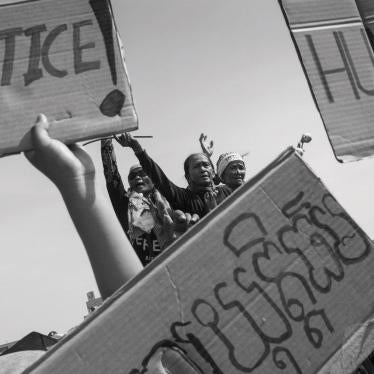Human Rights Watch today urged an international conference on technology, now meeting in Vienna, not to expand controls on encryption technologies.
The conference is reviewing the 1996 Wassenaar Arrangement, an international agreement signed by 30 countries to govern the proliferation of military technology.
Dissidents and human rights organizations under repressive regimes frequently use encryption technologies to share information. Encryption has the power to authenticate the identity of these authors to their partners abroad, while protecting their identity from despots at home.
The United States has adopted relatively restrictive encryption policies, which prohibit the global dsitribution of software used to encrypt text. In particular, Washington has outlawed the export of the most popular software among human rights activists, Pretty Good Privacy (PGP), although the Wassenaar Arrangement explicitly exempts crypto-software, like PGP, that is widely available in the public domain.
Human Rights Watch warned the other participants in the Vienna conference not to incorporate such restrictive policies into the Wassenaar Arrangement, or to further limit the global distribution, development, or use of strong encryption hardware or software.
"Encryption is more than a shield for human rights activists," said Jagdish Parikh, associate online researcher at Human Rights Watch. "Coded language is still language, and it must be protected as a basic human right to free expression." Parikh noted that the right to free expression is set forth in Article 19 of the International Covenant on Civil and Political Rights, to which most members of Wassenaar Arrangement are party.
Human Rights Watch said that encryption is also an important bulwark against violations of privacy in an age where computerization and data banks enable the collection of huge amounts of personal information about individuals. Moreover, international law requires states not only to refrain from arbitrary interference with privacy, but to affirmatively protect its citizens from such attacks.
"The sorts of countries most eager to ban the use of encryption, such as China and Iran, are not known for respecting freedom of speech," said Parikh. "Using encryption should not subject an individual to criminal sanction, any more than using Pig Latin or Swahili does."
Many human rights activists around the world would be spared retaliation and abuse if crypto-software were more widely available, Parikh said.







